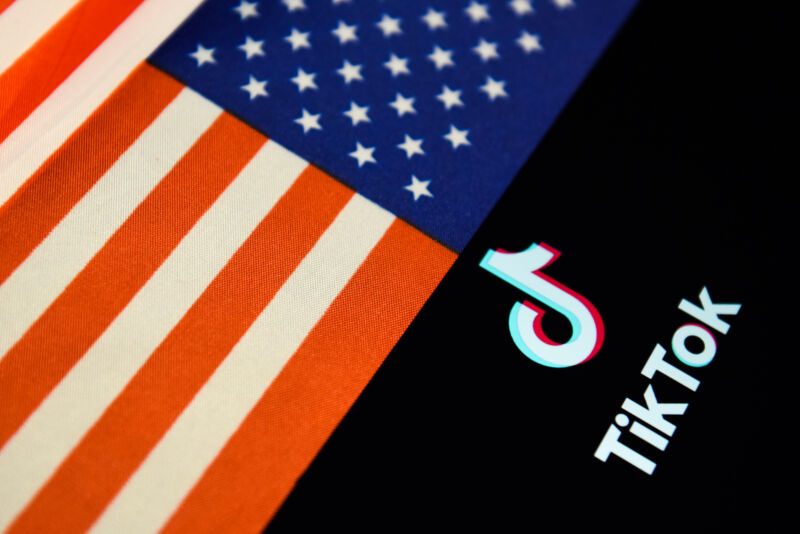
After weeks of rumor and speculation, the Trump administration this weekend gave TikTok’s parent company, Beijing-based ByteDance, 45 days to sell off the social media sensation or else stop operating in the United States—and Microsoft looks to be the buyer.
Microsoft on Sunday confirmed what several media outlets had been speculating since Friday, saying it is in talks to buy TikTok’s operations in the US, Canada, Australia, and New Zealand and may also invite other US investors to take minority stakes in the deal.
“Microsoft will move quickly to pursue discussions with TikTok’s parent company, ByteDance, in a matter of weeks, and in any event completing these discussions no later than September 15, 2020,” the company said in a corporate blog post. “During this process, Microsoft looks forward to continuing dialogue with the United States Government, including with the President.”
Specifically, the transaction would take place to allay US concerns about data being stored in China and possibly accessed by the Chinese government, the blog post said:
This new structure would build on the experience TikTok users currently love, while adding world-class security, privacy, and digital safety protections. The operating model for the service would be built to ensure transparency to users as well as appropriate security oversight by governments in these countries.
Among other measures, Microsoft would ensure that all private data of TikTok’s American users is transferred to and remains in the United States. To the extent that any such data is currently stored or backed-up outside the United States, Microsoft would ensure that this data is deleted from servers outside the country after it is transferred.
A national security threat?
US regulators have been expressing concerns about TikTok’s Chinese ownership since last year. In October, Senate leaders from both parties pushed for intelligence agencies to open an investigation of TikTok. “TikTok’s terms of service and privacy policies describe how it collects data from its users and their devices, including user content and communications, IP address, location-related data, device identifiers, cookies, metadata, and other sensitive personal information,” the senators wrote at the time. “While the company has stated that TikTok does not operate in China and stores US user data in the US, ByteDance is still required to adhere to the laws of China.”
By the time a week had passed, regulators were obliging—the Committee on Foreign Investment in the United States, or CFIUS, opened a review in November. CFIUS, which is based in the Treasury Department, comprises members from several agencies that review transactions in which a foreign buyer acquires a US firm for potential national security concerns. Since 2019, CFIUS has expanded authority also to investigate certain kinds of major investments that aren’t straight acquisitions as well.
TikTok was formed when ByteDance bought US firm Musical.ly for roughly $1 billion in 2017 and then rebranded and relaunched it under the TikTok name. CFIUS did not review the Musical.ly deal at the time, but it has the authority to do so retroactively—as it now is. That kind of review is what led to President Donald Trump’s 2018 executive order prohibiting Broadcom from purchasing rival Qualcomm (even though Qualcomm had vehemently turned down every single offer Broadcom made it).
Secretary of State Mike Pompeo said in July that the administration was considering an outright ban on TikTok as well as potentially expanding that type of ban to other Chinese firms. “With respect to the Chinese apps on people’s cell phones I can assure you the United States will get this one right,” Pompeo said. “I don’t want to get out in front of the president, but it’s something we’re looking at.”
Tick… tock…
Trump on Friday night said unequivocally that he wanted to ban TikTok. “As far as TikTok is concerned, we’re banning them from the United States. … I have that authority,” he told reporters while on Air Force One, indicating an executive order could come as soon as Saturday.
Other officials inside the administration, including Treasury Secretary Steven Mnuchin, pushed for a sale instead of a ban, sources told Reuters and the Wall Street Journal. Microsoft CEO Satya Nadella spoke by phone with Trump on Sunday, after which the White House agreed to the 45-day sale deadline and Microsoft made its public statement about the potential deal.
Update 3:23pm ET: In the hours after Ars published this story, President Trump told reporters he approved of the potential Microsoft transaction.
If Nadella wants to “go ahead” with the deal, “he can try,” Trump said. “We set a date, I set a date, of around September 15th, at which point it’s going to be out of business in the United States. But if somebody, whether it’s Microsoft or somebody else, buys it, that’ll be interesting.”
Inexplicably, Trump also added: “More than anything else, I said a very substantial portion of that price is going to have to come into the Treasury of the United States. Because we’re making it possible for this deal to happen. Right now, they don’t have any rights, unless we give it to them. So if we’re going to give them the rights, then it has to come into, it has to come into this country.”
The commission he imagines the federal government receiving from the deal seemed to be foremost on his mind. “So it’ll close down on September 15th, unless Microsoft or somebody else is able to buy it, and work out a deal, an appropriate deal, so the Treasury of the— really the Treasury, I suppose you would say, of the United States, gets a lot of money. A lot of money,” Trump concluded.
Although the administration can arguably require ByteDance to divest TikTok on national security grounds, Trump did not explain what legal basis or mechanism would make his proposal that the United States get a cut—a “lot of money” or otherwise—from the transaction possible.
https://arstechnica.com/?p=1695888

